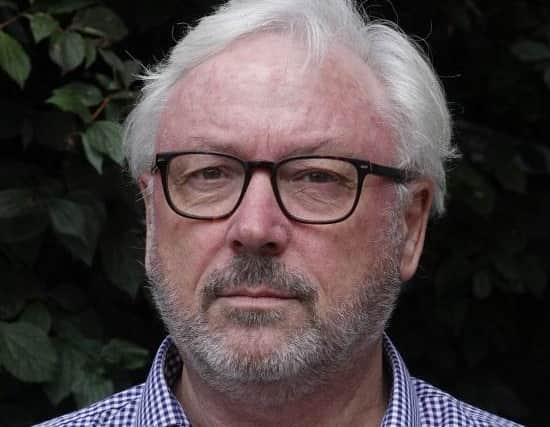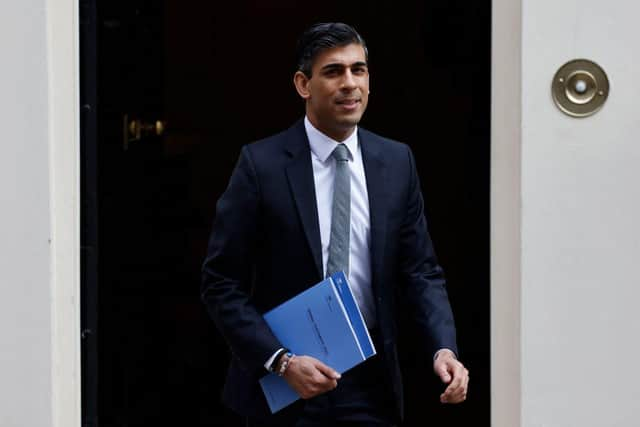Spring Statement 2022: Why Chancellor Rishi Sunak's budget statement has to be the worst I’ve experienced
and live on Freeview channel 276
As the Office for Budget Responsibility reported as he sat down, the UK is now facing the biggest cost of living crisis since the 1950s.
In work I published recently, I showed that the impact of this crisis is not spread evenly. The costs of a household trying to live on the wages of a person on minimum wage might increase by 14 per cent – or maybe £3,000 – in the next year. Those on average wages might have an 11 per cent increase, or about £3,600, having allowed for wage rises. For the best off that increase might be only five per cent.
Advertisement
Hide AdAdvertisement
Hide AdTo be blunt, a household living on less than £20,000 a year cannot find £3,000 extra to pay its bills. Nor can one earning £30,000 or thereabouts fund £3,600 withy any ease. That, I would have thought, should have been obvious to anyone. But as Sunak’s budget statement showed, it wasn’t to him.


Ignore what he did do for a moment. It is as important to note what he did not do. He did not increase any benefits. He did not adjust them, or pensions, for the fact that the inflation rate is more than double now what the rate was when the increases due in April were set.
Nor there was no additional help for household bills. Even the 5p off fuel duty that he announced is less than the extra VAT he is now collecting on each litre of petrol sold, whilst the national insurance saving is largely cancelled by the new NHS levy and the increase in income tax bills because the allowance for tax free income has not been increased this year despite inflation that is likely to be at least 8 per cent before the year is out.
The total extra money given to councils to use to help those in hardship as a result was £500 million. But household fuels bills are likely to increase by £38 billion in all this year – or 76 times this hardship fund, which will go nowhere meeting need as a result.
Advertisement
Hide AdAdvertisement
Hide AdAnd in the midst of all this Sunak had the cheek to announce he was expecting to reduce his debts, and that he will be offering tax cuts to business. So there will be no new money for any public services then. If you are on an NHS waiting list the message was ‘tough luck’ because nothing to help you is going to happen soon.


What is going to happen instead is that, as I have also shown in analysis that I have done, that big business is going to be raking in the profits resulting from the exploitation of oil, gas and wheat shortages that are driving up prices. And, whilst that is happening half, at least, of all households in Sheffield are going to be cutting their expenditure to the absolute bone, just to make ends meet.
What I mean by that is that many of those who can afford to still go out, or spend on a hobby, or just on new clothes, will stop doing so because there will be no money left over in many, if not most, households once new energy bills and other cost of living increases hit, very hard.
For some those spending cuts will still not be enough. They will go into rent and other arrears, or borrow in ways they may not be able to repay. Some are going to lose their homes either because landlords evict them or because they cannot pay their mortgages. An untold number of personal tragedies were written into today’s budget from Sunak.
Advertisement
Hide AdAdvertisement
Hide AdBut that’s only the start of the problem we face. That’s because when people stop spending – and even Sunak acknowledged that is likely in his scaled-down growth expectations – then businesses begin to lose money, and in turn people lose their jobs. That’s going to be most especially true in the leisure and travel sectors. People without money don’t go out. Bars, takeaways, cafes, restaurants, cinemas and more will close as a result. And holidays are not going to happen. People will lose their jobs as a result.
When that happens this crisis will just get deeper. In fact, it’s all too easy to see this becoming a full blown recession. It may even create a banking crisis as those with mortgages default through no fault of their own.
Sunak could have prevented this. He could have cut fuel duty by 50p, or more so people could still travel. And he could have fixed the price of fuel for an average house at 2021 prices, only letting larger houses pay more. He could also have increased benefits. Sure there would have been some debt, but the national debt is just the UK’s money supply – even bank notes are included in it – and with inflation happening we need more of that money anyway.
Sunak chose not to help. He chose to ignore people’s real plight. The cost of that in every community around Sheffield is going to be enormous. I am so sorry to be they bearer of such bad news.
Prof Richard Murphy is a chartered accountant, economic justice campaigner and Professor of Accounting Practice at Sheffield University Management School